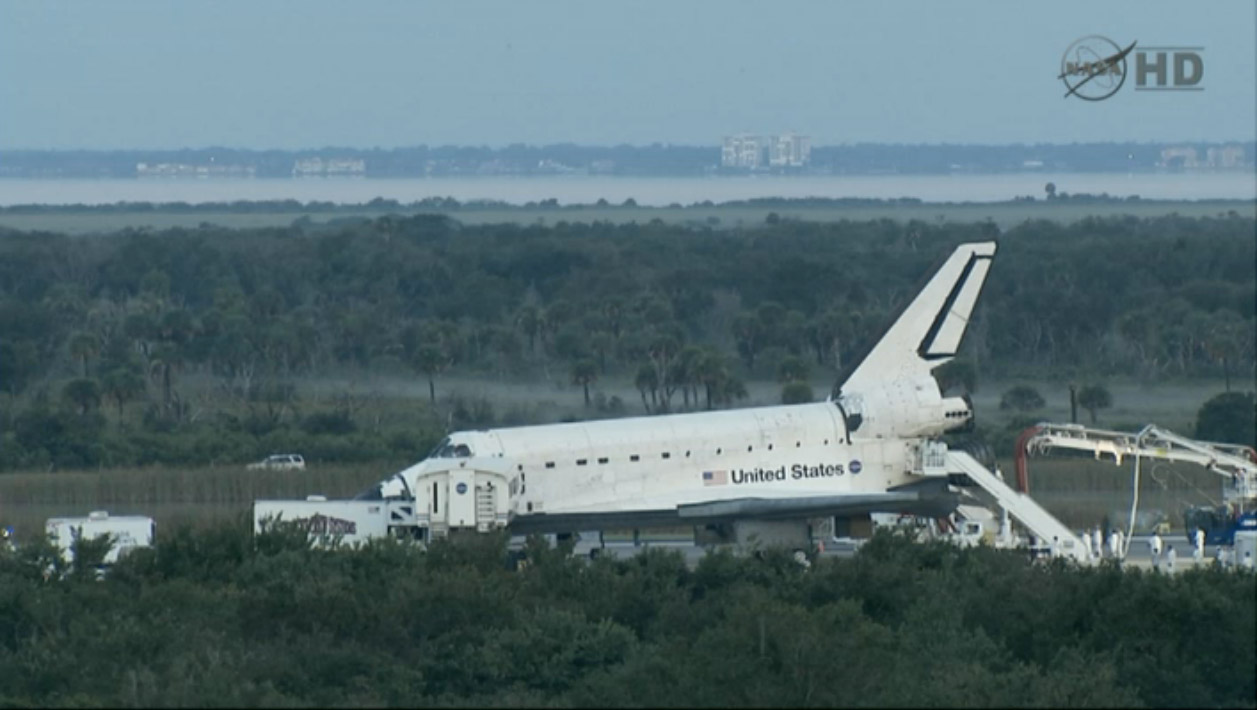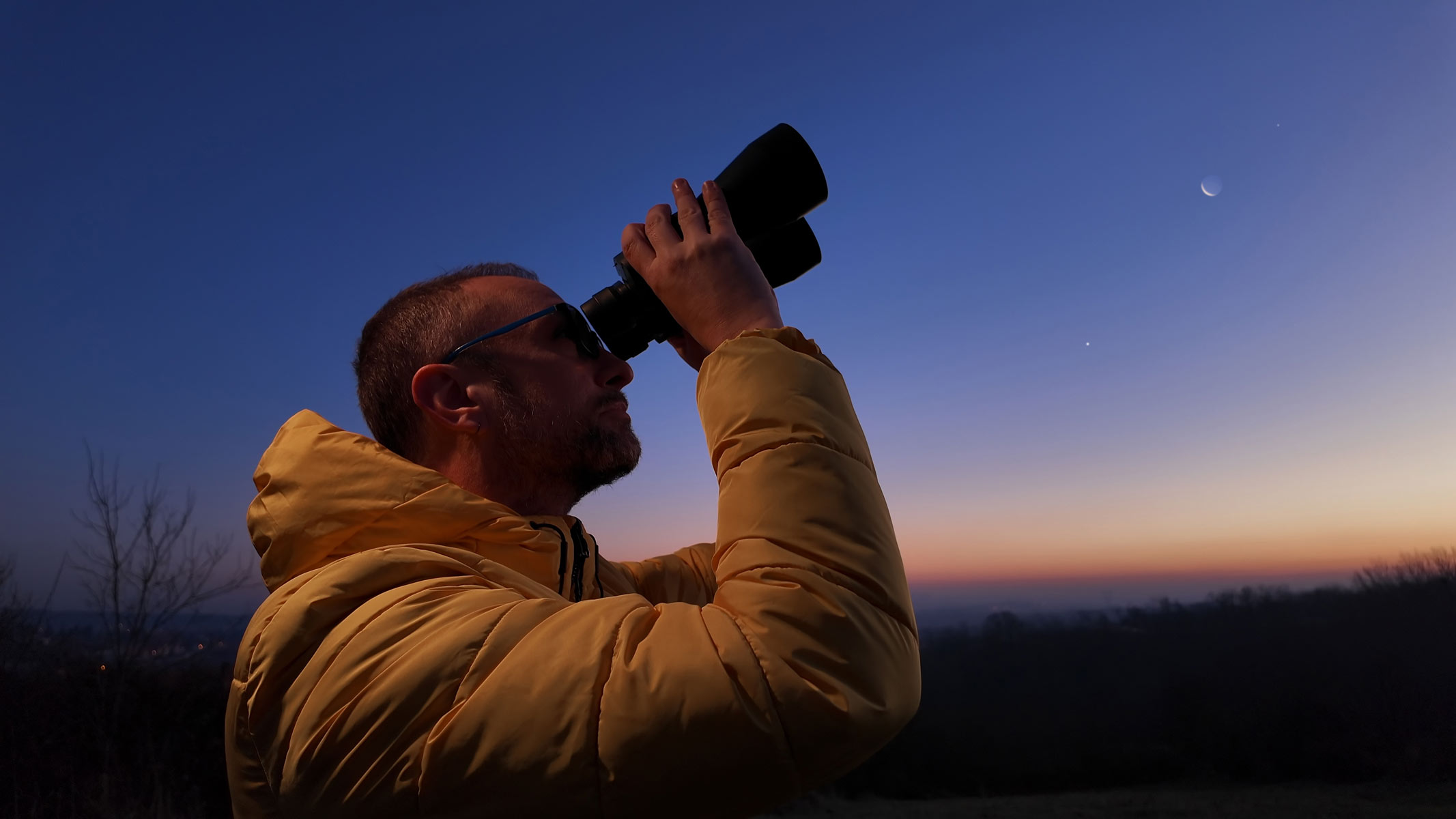
As Space Shuttle Era Ends, NASA Pride Reigns From Runway to Mission Control

As the space shuttle Atlantis' wheels rolled to a stop for the final time at NASA's Kennedy Space Center in Florida, the historic moment elicited a sense of pride and accomplishment, tinged with sadness, for the astronauts and those who have been intimately involved with the shuttle program.
"Mission complete, Houston," Atlantis' commander Chris Ferguson said. "After serving the world for over 30 years, the space shuttle found its place in history, and it's come to a final stop."
Atlantis launched July 8 to the International Space Station on the last ever mission of NASA's space shuttle program. After 30 years of flying the orbiters, the program officially came to a close when Atlantis returned to Earth at 5:57 a.m. EDT (0957 GMT) this morning. [Photos: NASA's Last Space Shuttle Landing in History]
As the shuttle sat on the runway at the Kennedy Space Center's Shuttle Landing Facility, Ferguson spoke about the enduring legacy of the iconic orbiters.
"The space shuttle changed the way we viewed the world, and it changed the way we view our universe," Ferguson said. "There's a lot of emotion today, but one thing is indisputable: America is not going to stop exploring. Thank you Columbia, Challenger, Discovery, Endeavour, and our ship Atlantis. Thank you for protecting us and bringing this program to such a fitting end. God bless all of you. God bless the United States of America." [By the Numbers: NASA's Space Shuttle Program]
Paving the way for the future
NASA administrator Charles Bolden also commented on the significance of the event and the accomplishment of those who dedicated their lives to the shuttle program.
Get the Space.com Newsletter
Breaking space news, the latest updates on rocket launches, skywatching events and more!
"As we move forward, we stand on the shoulders of these astronauts and the thousands of people who supported them on the ground - as well as those who cheered their triumphs and mourned their tragedies," Bolden said in a statement.
Bolden also looked to the future, as the shuttle program ends to make way for new exploration projects, to destinations like an asteroid and Mars.
"The future is bright for human spaceflight and for NASA," he said. "American ingenuity is alive and well. And it will fire up our economy and help us win the future, but only if we dream big and imagine endless possibilities. That future begins today."
Emotions from Mission Control
From Mission Control at NASA's Johnson Space Center in Houston, the shuttle's entry flight director Tony Ceccaci wrapped up the final flight control shift of the shuttle program with some words to the members of his team.
"Hopefully I can get through this," Ceccaci said. "I'd like to take this opportunity to say a few words and this will be the last time this team will be together. First and foremost, I want to thank you guys – my colleagues, my friends in the shuttle flight control room of mission operations. It's been my extreme privilege and honor to work with each one of you and have been part of this outstanding team of individuals, so dedicated and passionate about the work they do. Each one of you should take great pride in the accomplishments you have achieved and know that you are the main reason for the success of the space shuttle program."
Ceccaci reminisced about the very first shuttle mission – the STS-1 flight of Columbia, which launched on April 12, 1981, saying, "thirty years ago, the dream had just begun."
"As Columbia's nosegear touched down, [STS-1 flight director Donald] Puddy told his team, 'prepare for exploration,'" Ceccaci said. "The shuttle hasn't failed us in that. It was a moment for the history books. Today is also a moment in the history books. Those books will talk about the amazing work of the flight control teams over the past 30 years. The work done in this room, in this building, will never again be duplicated. I believe that the accomplishments of the shuttle program will become the next set of shoulders of giants for the future programs to stand on. Hold your heads up with pride as we close out the space shuttle program. You have earned it."
And as he signed off from the final shift of the shuttle program, Ceccaci left a message
"Savor the moment. Soak it in and know you are the best, the best in the world," he said. "Your work here has made America and the world a better place. It's been an unbelievable and amazing journey. From Intrepid Flight to the entire NASA team: God bless you all and Godspeed."
You can follow SPACE.com Staff Writer Denise Chow on Twitter @denisechow. Follow SPACE.com for the latest in space science and exploration news on Twitter @Spacedotcom and on Facebook.
Join our Space Forums to keep talking space on the latest missions, night sky and more! And if you have a news tip, correction or comment, let us know at: community@space.com.

Denise Chow is a former Space.com staff writer who then worked as assistant managing editor at Live Science before moving to NBC News as a science reporter, where she focuses on general science and climate change. She spent two years with Space.com, writing about rocket launches and covering NASA's final three space shuttle missions, before joining the Live Science team in 2013. A Canadian transplant, Denise has a bachelor's degree from the University of Toronto, and a master's degree in journalism from New York University. At NBC News, Denise covers general science and climate change.
